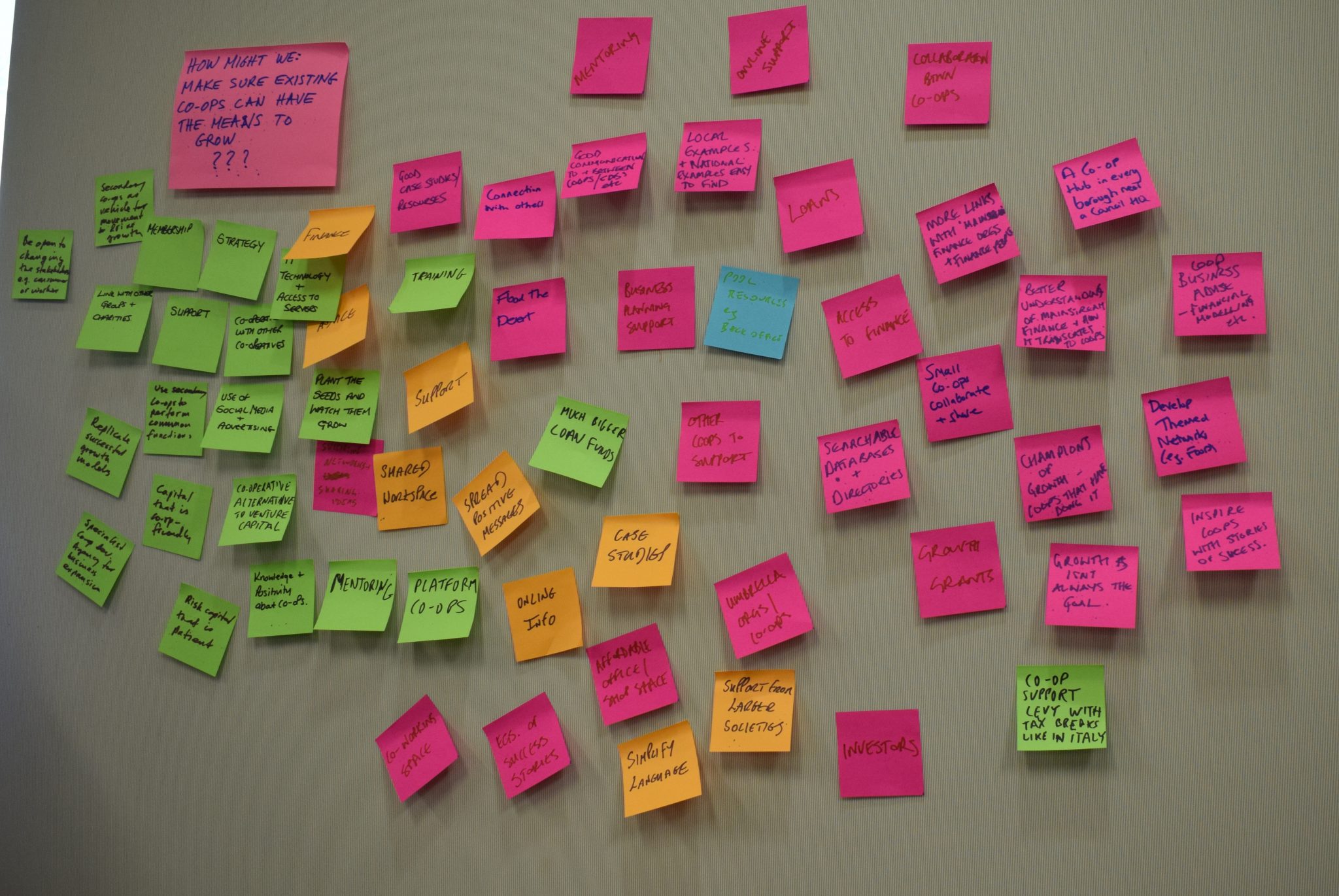The Future Co-ops Conference is always inspirational. It’s an informal but informative conference – fun but focused, entertaining but constructive – and people leave inspired to take action to help spread the co-operative word.
The 2019 conference was entitled “How to make co-ops bloom in a co-operative desert” and the first workshops started with case studies, outlining scenarios of co-op failures. Groups were asked to assess what went wrong, and the point where interventions could have changed the outcome.
In one example, Winnie set up a social enterprise which was successful, but her board members were not active participants and she soon realised that a co-operative structure might have been better. Although she considered a co-op in the first instance, she was only offered a course on setting up a social enterprise – so she went down that route.
Did this scenario fail when she didn’t get advice on a co-op – or was it when she chose her board members? Could better education and information on co-ops have changed the outcome?

In another example, Mike ran a successful technology worker co-op. He needed investment for a new product. Eventually he found a venture capital trust to invest – but they wanted 30% ownership, so the co-op was converted to a company.
Was it when Mike visited specialist loan providers that he set off on a different route because he lacked knowledge and understanding of funding options available to him – or was it that his expertise lay with his technology skills and he didn’t have the expertise for business planning? Could advice on co-operative finance have helped him stay as a co-op?
Nassim loved baking and joined a couple who had set up a co-op bakery which soon expanded to six and then nine members. The two founders left, then Nassim had time off to have a baby. When she returned she wanted to introduce new products but there was no board meeting structure to progress this – and Nadim left.
Related: From a social media revival to stronger networks, ideas produced at Future Co-ops
Was it when the founders left that things began to go wrong – or was it when the co-op first expanded to 6 members that co-op culture and structure should have been formalised? Or was it when the business reached 9 members and was taking off that strategy, management skills, business planning and governance could have helped Nassim?
These were a few of the examples that inspired discussion and set the agenda for the second day of workshops but there were many discussions over dinner about the issues raised – and how to resolve them.
The Future Co-ops Friday Night Quiz has become something of a tradition. This year, Richard Bickle from Central England Co-op set the questions and, instead of faces to name, the picture round consisted of photos of ancient hardware items, inspiring memories of coal scuttles, tin baths, hand tools and hurricane lamps.
The second day posed groups with a series of questions on how to grow and support the co-op movement, prompting lively discussion of how to help entrepreneurs understand and choose a co-op model, how to improve business planning, support growth in new and existing co-ops, and encourage co-ops in places and sectors where they are thin on the ground.

The conference concluded with all participants writing down actions on postcards; they handed these in to Co-op Futures’ executive director Jo White – who, to keep us on our toes, will be posting them back to us in six months’ time.
The Future Co-ops conference is always different – and there is never much chance to dose off after lunch!
It’s full of case studies, real co-operative stories about worker co-ops, collaborative ventures, co-operative activists and community cafes; people from all parts of the co-op movements attend.